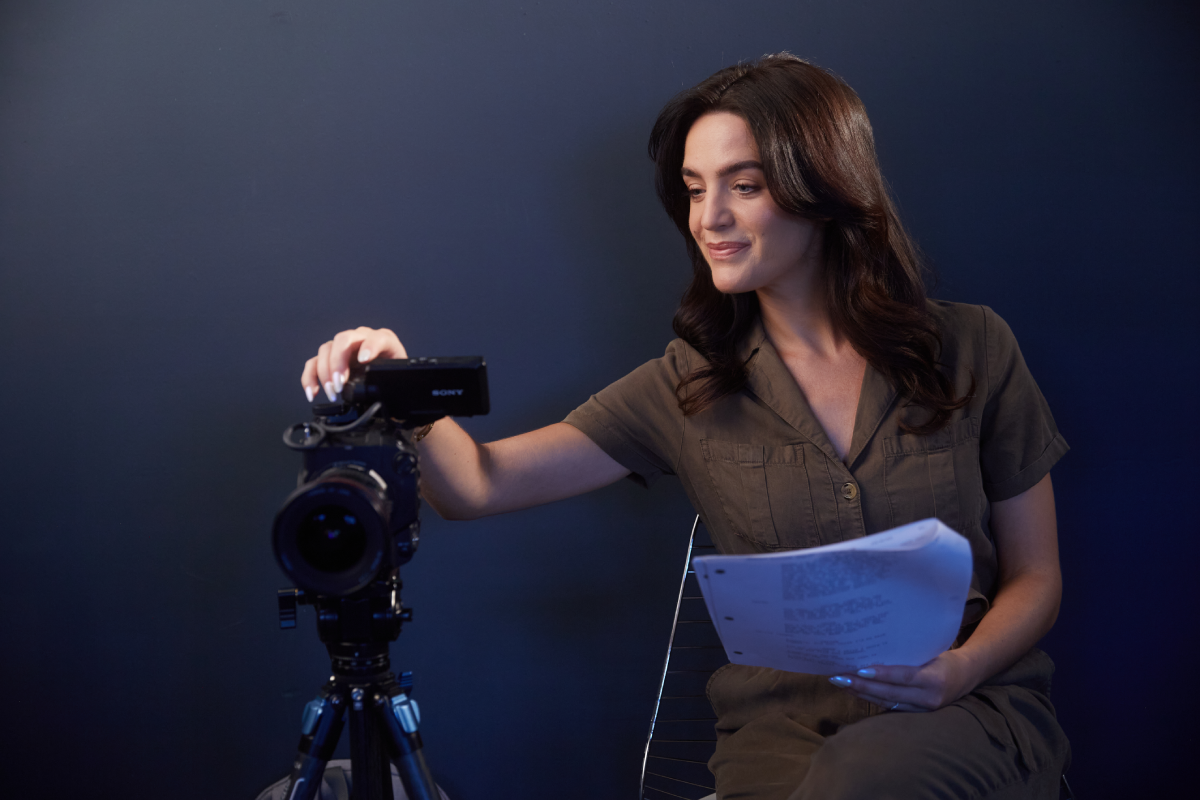An industry standard for self-taping now exists, we must all work to uphold it.
A four day minimum turnaround, a maximum of six pages, protection for bank holidays. For years, these have been utopian ideals wistfully longed for by actors adjusting to the demands of self-taping. They are now a reality. A ground-breaking joint agreement between Equity, the Personal Managers’ Association, the Co-operative Personal Management Association and the Casting Directors’ Guild has codified terms of best practice for self-taping, establishing an industry standard.
Self-tapes have long been a helpful tool in the casting arsenal. I was first asked to shoot one in 2012 when I was filming abroad and couldn’t attend an in-person audition. It was a welcome way of getting my hat in the ring. This is how self-tapes emerged – as a solution. But in the years that followed, they started to become a problem. They began to replace first round meetings entirely and, freed from the constraints of time-slots and studio space, unrealistic deadlines and excessive pages crept in, becoming a source of stress and anxiety for actors everywhere.
In 2020, with all in-person meetings off the cards, the pandemic established self-taping as the new normal. A spike in complaints to Equity soon followed, prompting a survey of members. It became the most responded to questionnaire in the union’s history and revealed some shockers: a significant number of actors had been asked to produce a self-tape in less than five hours, while some reported having to prepare nearly 50 pages at a few days’ notice. Jonny Weldon’s brilliant viral sketch about self-taping (and the hundreds of replies it elicited) stands as testament to these realities.
Action was needed and so a working party was formed of elected Equity committee members to tackle the issue. I was one of them. In early 2021, we initiated talks and, in a wonderfully positive Zoom-facilitated atmosphere, we all shared our grievances. Casting directors disclosed the pressures they face from producers; agents revealed that they frequently have to start work before office hours, processing tapes for morning deadlines. There was unanimous agreement that we would all benefit from establishing a code of best practice.
Negotiating such an agreement between four organisations in an industry as dynamic as ours was no easy task. But after several months, we pinned it down. The Code of Best Practice for Self-Tape & Zoom Auditions for Scripted Drama (which includes scripted comedy – the title is simply to differentiate it from the separate code in the works for commercials) is a game-changing document that benefits everyone involved in the casting process. By setting boundaries and encouraging open communication, it is designed to foster a culture of respect.
With this in mind, a four-day minimum turnaround that makes provision for bank holidays is a huge achievement. Equally worth celebrating is the six page maximum, with a two scene and two role limit. Additionally, a three day minimum turnaround has been agreed for three pages or less. These provisions respect everyone’s time and ensure actors can produce (and casting directors can receive) high quality work, without compromising on efficiency.
Of course, the nature of our business will always mean that there are occasional circumstances where it is not possible to comply with every stipulation. But the code makes clear that in such cases all parties should work together to find a solution, if possible. This is the fundamental point of establishing an industry standard. It promotes communication and ensures that everyone in the process – from producer, to director, to casting director, to agent and actor – knows what to expect. It relieves pressure on us all.
For actors, that includes those around us. We increasingly rely on friends, family and partners to fulfil the role of casting assistant and this can put immense pressure on our relationships. During our round-tables, we heard about one case in which a marriage broke down because of it. It is incredibly welcome that the code commits to readers not being an “absolute requirement” and states clearly that “actors are not expected to pay for readers”.
Self-tapes are not perfect, there’s no opportunity to respond to direction, and a lack of acknowledgement after submitting can feel dehumanising. (The CDG has renewed its commitment to Equity’s Yes/No campaign; actors and agents are encouraged to report members who do not comply, anonymously if preferred.) But they do offer benefits over regular auditions and remain an incredibly useful tool.
Self-tapes give actors control over their work, eliminate travel expenses and allow casting directors to consider a wider range of talent. They are here to stay, but they are no longer unregulated. I encourage actors to use the code to communicate their needs. I encourage agents to use it to vet submission requirements. And I encourage casting directors to put it into practice. An industry standard now exists. We must all work to uphold it.
 Jassa Ahluwalia is an actor, writer and filmmaker. He came to prominence in BBC Three series ‘Some Girls’, followed by roles in ‘Ripper Street’, ‘Peaky Blinders’ and ‘Unforgotten’. Theatre credits include ‘Skin A Cat’ at The Bunker and ‘Herding Cats’ at Soho Theatre. His award-winning debut short film, ‘Heart’s Ease’, was an official selection at San Diego International Film Festival and his second, ‘Near’, is set to premiere at New Renaissance London Film Festival 2021. Jassa is the creator of the hashtag #BothNotHalf, which he uses to explore mixed identity and his own British-Indian heritage.
Jassa Ahluwalia is an actor, writer and filmmaker. He came to prominence in BBC Three series ‘Some Girls’, followed by roles in ‘Ripper Street’, ‘Peaky Blinders’ and ‘Unforgotten’. Theatre credits include ‘Skin A Cat’ at The Bunker and ‘Herding Cats’ at Soho Theatre. His award-winning debut short film, ‘Heart’s Ease’, was an official selection at San Diego International Film Festival and his second, ‘Near’, is set to premiere at New Renaissance London Film Festival 2021. Jassa is the creator of the hashtag #BothNotHalf, which he uses to explore mixed identity and his own British-Indian heritage.
Headshot by Ramanique Ahluwalia
Main image by CoWomen on Unsplash



















